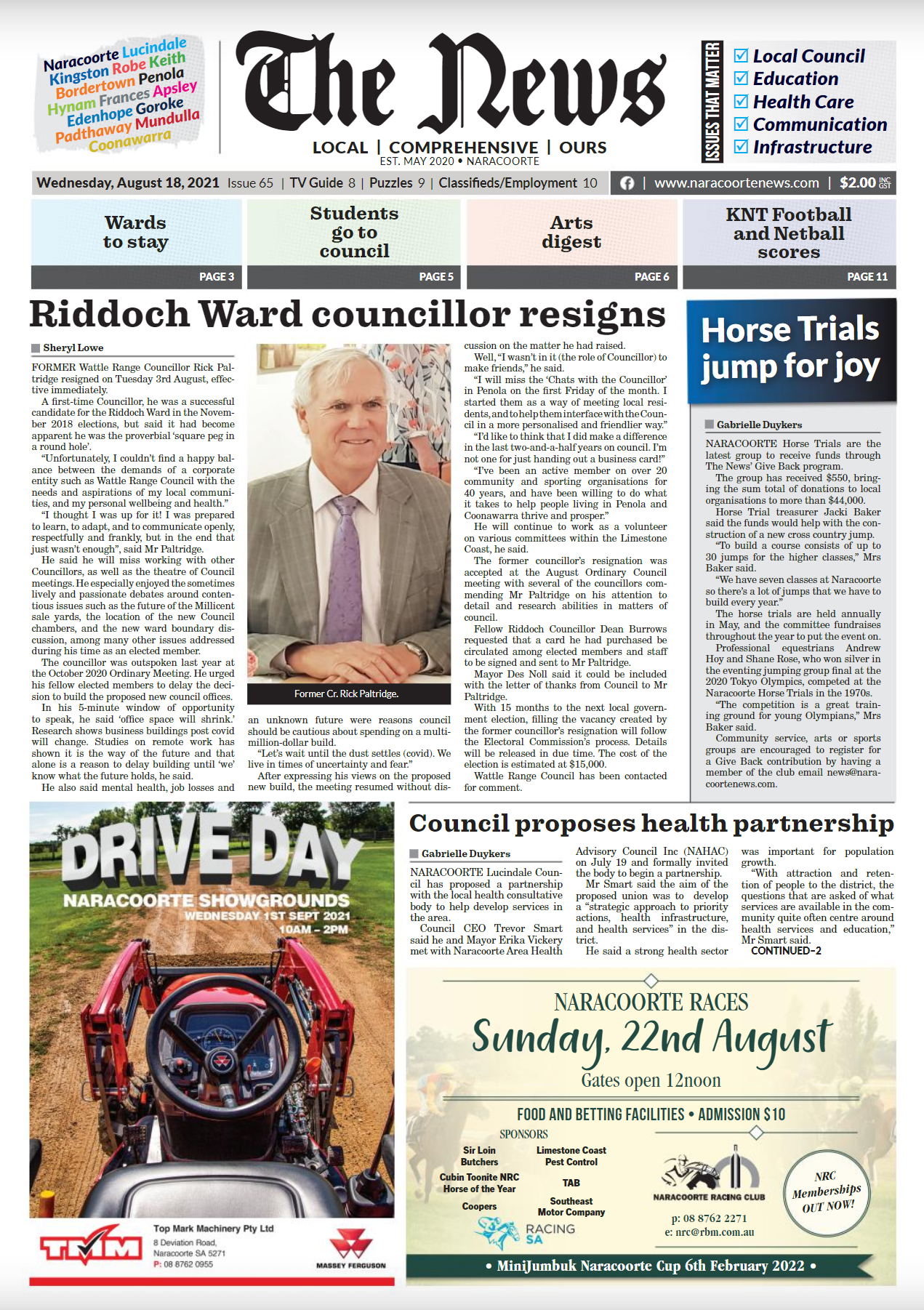Eliza Berlage, Naracoorte Community News
The struggle to secure childcare services in rural and regional areas has led some parents to sacrifice their careers or move to bigger cities, according to a new study.
The research conducted by Federation University researchers was carried out across Victoria’s Wimmera Southern Mallee region.
It found regional and rural areas lacked childcare services and staff to work at the centres, and that childcare was often not seen as profitable enough to attract new operators to the sector.
Dr Cathy Tischler, from the Future Regions Research Centre, said the study revealed that no organisation had responsibility for the provision of childcare where market failure occurred.
The Wimmera-based researcher said this was different to kindergarten services that were funded by the government and had to be delivered.
“There is a gap in regulatory support because we are relying on the market to deliver these services,” Dr Tischler said. “When these services don’t exist, instead of being a community problem, it is left to individual people to find their own solutions to try and address that.
“We found that there is a need for a more extensive investigation into what people do when market failures occur because it seems that many are leaving the regions or they go and work in a bigger centre where they can get childcare and this has flow-on effects to the smaller communities.
“We spend all this money trying to attract people to the regions and then we don’t have the infrastructure to support them as their life changes.”
Dr Tischler said the lack of subsidised childcare often meant parents were paying twice as much as those living in urban areas for childcare because parents were finding their own unregulated childcare solutions, which could not attract federal government funding.
She said the lack of childcare was also a significant equity issue for both parents, although the study found it was primarily women who put their careers on hold to care for children – potentially sacrificing career goals, independence and financial stability.
Dr Tischler said feedback from the research also indicated that the problem was cultural, with providers and potential providers adamant that starting a childcare service was not cost-effective.
“There needs to be a push for change,” she said. “Why can’t we have childcare plugged onto a kindergarten system or an arrangement like that to make it work?”
Dr Tischler said the research identified that the difficulty in securing childcare services meant the issue needed to be reframed as an economic development and equity issue for regions.
“This is not an individual problem for people or even an individual problem for councils,” she said. “The question should be how can the region actually provide a cohesive response to this?’
Dr Tischler said the researchers planned to have follow-up conversations with Federal and State government representatives about the issue as a gender equity problem.
“We don’t well support the women that we attract out to the region, to allow them to feel fulfilled in their careers as well as raise children,” she said.
This article appeared in Naracoorte Community News, 18 August 2021.

